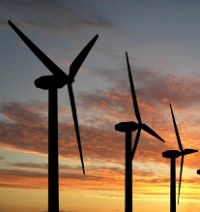

The European Union's renewable energy targets for 2020 appear to be within reach whilst the UK is one of only three member states to become more dependent on imported energy in the last decade.
The target is 20% of final energy consumption must come from renewables by 2020. In 2014, the EU reported the share of renewables had hit a healthy and encouraging 16%, bringing the target within sight.
Furthermore, a report from the European Commission found that between 1990 and 2015, the EU combined GDP grew by 50% whilst emissions decreased by 22%.
On the other hand, the UK, along with Denmark and Poland, have increased imported energy "due to the decline of indigenous fossil fuel production".
The report also found that 11 of the EU’s 28 member states have not yet reached the target of 10% of their energy production being connected to other member states. Bulgaria, Cyprus, Germany, Spain, France, Ireland, Italy, Poland, Portugal, Romania and the UK are said to need “to continue their efforts” to improve interconnectivity.
The Commission believes connecting Europe’s electricity systems will allow the EU to boost its security of electricity supply and to integrate more renewable energy.
Energy poverty also remains an issue in many member states. On average, energy-related costs made up 8.6% of low-income households’ expenditure in the EU. This share has increased for most EU countries since 2005.